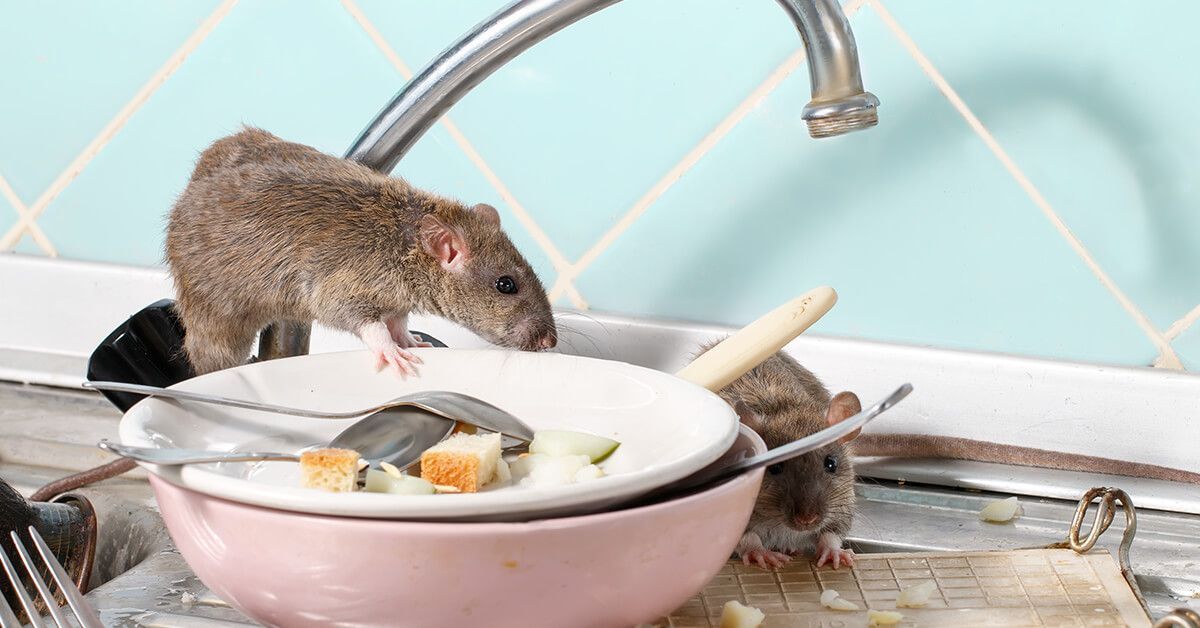If you’ve ever wondered how you get bedbugs, you’re not alone. This frequently asked question is a common concern on the minds of many people—especially when traveling.
Bedbugs, also known as Cimex hemipterus or Cimex lectularius, are tiny, parasitic insects that feed on human blood. Although bedbugs may look harmless, they can cause irritation and sleepless nights for those who become infested with them. Bedbug infestations typically occur in the home, specifically in bedding, mattresses, linens, and small cracks and crevices in furniture and walls. If you discover small, wingless insects that are reddish-brown in any of these locations in your home, you may have a bedbug infestation on your hands.
While this may not be the news you want to hear, it’s important to know how to quickly identify these unwelcome house guests and resolve the issue as soon as possible. Our friendly experts at Local Exterminator are here to give you all the information and tools you need to protect your home, now and in the future.
Bedbugs are one of the most annoying pests to have in your home. The first step to eliminating them requires an understanding of how bedbugs get transmitted in the first place.
These pesky little hitchhikers tend to travel from one location to another in a few different ways:
- Suitcases. If you’ve been on any recent adventures, it may be wise to examine your suitcases upon returning home, preferably outside before entering the house. Unfortunately, bedbugs are known to tag along on suitcases and luggage, often going unrecognized by the human traveler. Assuming you don’t want any unwanted passengers on your future trips, routinely check your suitcase to ensure you are arriving at your destination without these tiny pests.
- Used furniture. Bedbug transmission can also occur through used furniture. Whether you are into refurbishing vintage furniture or enjoy a great thrift find, it’s in your best interest to thoroughly inspect all the fabric, cracks, and crevices of your new-to-you furniture piece. While you may love a great story behind your one-of-a-kind find, you don’t want bedbugs to play a part.
- Bedding, clothing, and other fabric items. These small, wingless, oval-shaped insects cannot fly, so they rely on crawling to different surfaces for more effective travel. People travel much quicker than a bedbug can on their own, so attaching to bedding, clothing, or other fabric items like purses, hats, and other accessories make transmission much easier. Since bedbugs can be easy to overlook, people often unintentionally spread them to other people and locations without even realizing it.
Aside from being attracted to human blood, there are other things bedbugs find appealing. This breaks down different bedbugs attractants and offers tips on how to prevent them in your home.
Why They Are Attracted
Bedbugs love
places to hide. This may include, but is not limited to:
- Furniture seams, especially on furniture that is torn or in poor condition
- Behind loose electrical outlets and light panels
- Underneath paint that has lifted or is peeling
- Under loose carpeting
- Between carpet or rug fibers
- Behind headboards, picture frames, and loose wallpaper
How to Prevent Them
Routinely clean your home by thorough vacuuming, sweeping, and mopping. Wipe down walls, furniture surfaces, baseboards, and windowsills.
Make the necessary home repairs to eliminate any obvious hiding spots for bedbugs, such as fixing peeling paint and wallpaper, repairing furniture, tightening loose outlet covers, etc.
Why They Are Attracted
Bedbugs favor warm-blooded animals, including humans. Carbon dioxide is produced when we exhale, so in any area that has a good number of animals (or people) breathing, bedbugs are more likely to make an appearance.
How to Prevent Them
If you stay in a densely populated area such as an apartment complex or hotel, be aware that bedbugs may be more likely to congregate there due to higher-than-average levels of carbon dioxide. Bedbugs can also move between the walls of adjoining rooms, so be vigilant about sealing entry points and inspecting your rooms regularly.
Why They Are Attracted
Bedbugs prefer to stay close to their food sources and are attracted to the body heat of possible hosts.
How to Prevent Them
While it may not always be possible (or cost-effective) to run your air conditioning at night, you can explore more lightweight linen options that will keep you cooler while you sleep.
You can also regularly inspect your bedding, headboard, and surrounding furniture (side tables, benches, and lampshades) for signs of bedbugs.
Why They Are Attracted
Bedbugs are attracted to dirty laundry for two reasons: not only does it provide a great hiding place, but it also holds oils, scents, and sweat from the owner.
That’s why dirty clothes indicate to bedbugs that food is nearby. The longer you have dirty clothes that need attending to, the longer bedbugs will hang out, waiting for their next meal.
How to Prevent Them
Stay on top of your laundry game and avoid letting dirty clothes pile up. Be sure to wash seasonal clothing before storing it away for long periods of disuse.
If you suspect you may have a bedbug infestation, it’s best to act as quickly as possible since they can spread easily between rooms. Whether you’re checking your home, a hotel room, or an Airbnb you are staying at on vacation, here’s what to look for:
- Stains. Inspect your sheets, mattress (especially along the seams), blankets, pillows, and pillowcases for reddish-brown stains or dark spots. This may be blood or droppings from bedbugs.
- Eggs. Bedbug eggs are the size of a pinpoint, so they may be difficult to see with the naked eye. Try using a flashlight to aid in looking for these pearly-white, sticky eggs.
- Bug bites. Bedbug bites appear as small, swollen red bumps that are often itchy. They commonly appear in places that might become exposed as you sleep during the night, such as your legs, arms, shoulders, or even the back of your neck.
- Live bugs . The obvious giveaway that you have a bedbug problem is if you find live adult bedbugs. Often the size of an apple seed, bedbugs are oval-shaped and have a reddish-brown color after eating.
Understanding what bedbugs are, how you can get them, and how easily they can spread puts you on the right track to preventing further transmission. Here are some additional tips to help you stop the spread of bedbugs in the future:
DECREASE CLUTTER
Maintaining a clean and tidy home is one of the best preventative measures you can take when it comes to decreasing your chances of a bedbug infestation. Vacuuming, sweeping, and mopping your floors on a regular basis will make your home more enjoyable for you and less enjoyable for these tiny nuisances. After all, a clutter-free home is the least ideal environment for bedbugs (and many other pests) because there aren’t as many places for them to easily hide.
RETHINK SECONDHAND FURNITURE
That turn-of-the-century upholstered armchair you picked up at a local estate sale may look terrific in your living room. However, the headache and hassle you experience once you discover the bedbugs living within the fabric seams may quickly cause you to rethink your purchase. You don’t have to say goodbye to secondhand furniture forever, though. Just consider future purchases carefully and thoroughly inspect pieces before bringing them home. Check furniture the same way you would in a hotel room: look for live or deceased bedbugs, their eggs, and their debris in seams, joints, and hidden corners. Don’t forget to check the underside of furniture, too.
PROTECT YOUR BEDDING AND CLOTHING
If you don’t do this already, using a protective cover on your box spring and mattress can create an extra layer of protection from bedbugs. Similarly, when storing away seasonal clothing, try using vacuum-sealed bags to keep bedbugs from hiding in the folds of your garments. And if you share laundry facilities with other people, we recommend transporting your clothes in a plastic bag, as well as folding your clean clothes once you get home. Try to avoid letting your clothing make contact with shared surfaces as much as possible.
STAY ON TOP OF HOME MAINTENANCE
If you suspect you may have a bedbug infestation, or just want to take preventative action to avoid future issues, take a moment to inspect your home for cracks or crevices in the interior and exterior walls. Then, seal them up with plaster, spackling putty, or caulk to keep bedbugs (and other insects) where they belong—outside your home.
TRAVEL SMART
As mentioned previously, bedbugs are known to hitch a ride on suitcases, tote bags, purses, and even clothes. To prevent this from happening, always conduct a thorough inspection of the interior and exterior of these items before you head home. Before placing your luggage on the bed when arriving at a hotel, instead lay it in the bathtub or on another hard surface while you inspect the bed and room for bedbugs. If you find signs of bedbug activity, request a different room.
If you suspect your home has become infested by bedbugs, contact Local Exterminator. We understand how frustrating it can be to discover unwanted pests in the place you love the most. Our friendly experts will address your concerns and set you up for success!




